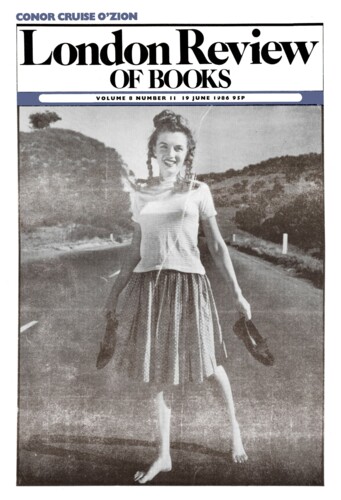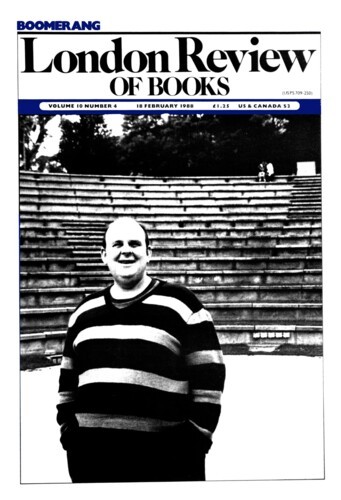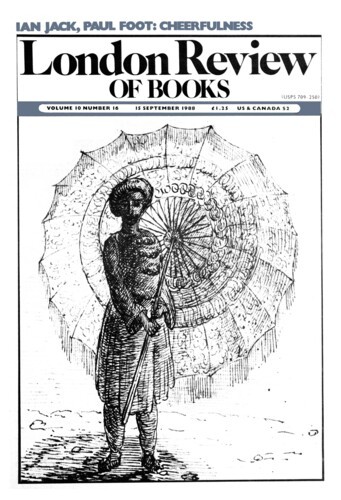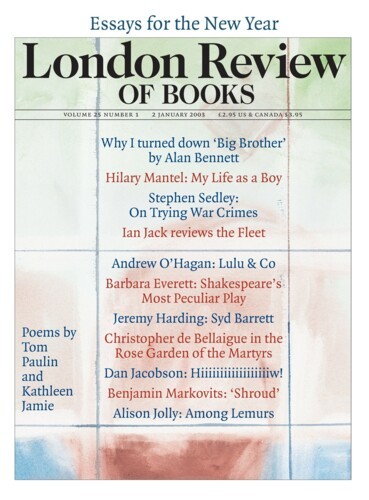Literary Guy
Ian Jack, 19 June 1986
Readers of the old Eagle may remember that educative comic’s colourful centre-spread, where every week the latest triumphs of British technology (this was the new Elizabethan age) would be dissected for the enlightenment of British boyhood (girls read the Girl). The cutaway drawing, the arrow and the numbered part explained the workings of the jet engine or the diesel locomotive, or how Hunt’s expedition scaled Everest with oxygen masks and Kendal mint cake. The Eagle believed in the future – Dan Dare was on the cover – but when, a decade or so later, its brilliant tradition of pictorial explanation was revived by newspapers such as the Sunday Times, neither technology nor the future looked quite so good. ‘How things work’ had become ‘why things went wrong.’ Arrows usually pointed to defective parts. Today, when scientific achievement is questioned more often than celebrated, an accident like Chernobyl can produce diagrams which resemble the sky over Crecy.’





